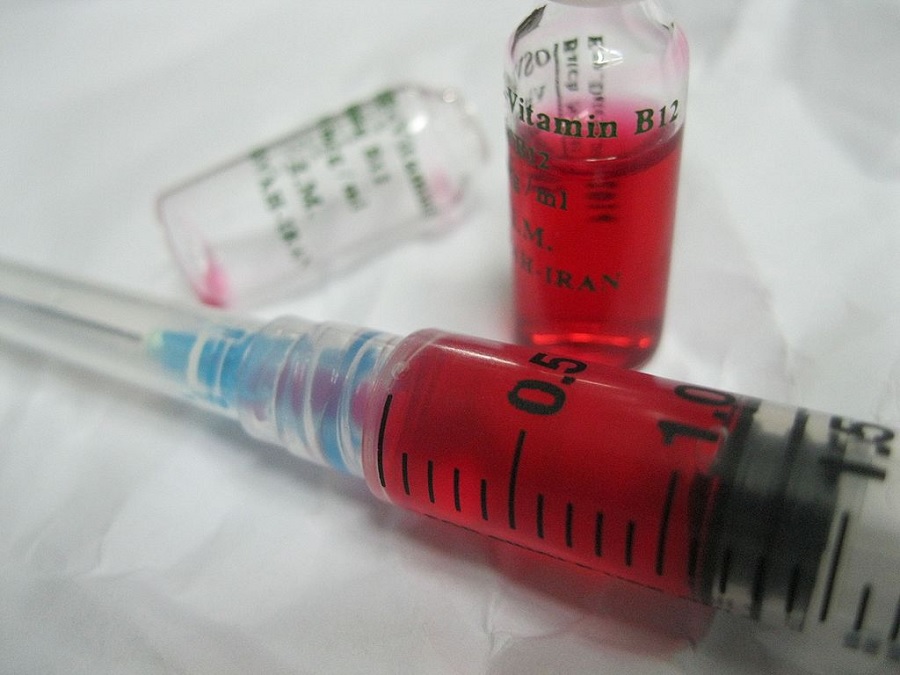A person suffering from pernicious anemia cannot produce enough healthy red blood cells. Since it is what transports oxygen throughout the body, this condition can lead to some serious health issues. However, there are readily available treatments and even proven healthy practices that one can maintain to manage this condition.
Pernicious anemia: Causes and symptoms
Pernicious anemia is sometimes mistaken as similar to vitamin B-12 deficiency. The confusion might be rooted in the fact that the production of healthy red blood cells requires certain levels of this vitamin, along with folate and iron. Of these three components, vitamin B-12 is absorbed by the body through a protein in the stomach called intrinsic factor.
The Pernicious Anemia Society stresses that this condition is an autoimmune disease because it results from the production of antibodies that eliminate the intrinsic factor. This then causes a person’s inability to absorb vitamin B-12. Meanwhile, the National Institute of Health also notes that people can also get diagnosed with pernicious anemia if their diet does not consist of enough vitamin B-12.
One of the known and most common symptoms of pernicious anemia is fatigue. Some other signs to look out for include shortness of breath, dizziness, difficulty in maintaining balance, pale or yellowish skin, chest pains, and coldness of the hands and feet, among others. It is pertinent to check the linked sources above to see the rest of the symptoms. And, as with other medical conditions, persistent symptoms should not be dismissed.
Pernicious anemia: How to treat it
The Latin origin of the word “pernicious” is “death” because getting diagnosed with pernicious anemia, until 1920, used to be a death sentence. Today, luckily, there are several ways to treat this condition by supplying the body with vitamin B-12.
It can be administered through injections, pills, nose gel, or spray. This is also why seeing a doctor is important because they can determine, depending on the severity of a patient’s pernicious anemia, what is the best treatment option. For patients who will be recommended with injected medicine, the frequency can also change over time.
With or without pernicious anemia, it is important to maintain a healthy diet. The best food sources of vitamin B-12 include various kinds of meat, seafood, eggs, and dairy products. People keeping a vegetarian or vegan diet can opt for soy-based drinks, fortified cereals, and foods packed with nutritional yeast.



 Sanofi’s Efdoralprin Alfa Gains EMA Orphan Status for Rare Lung Disease
Sanofi’s Efdoralprin Alfa Gains EMA Orphan Status for Rare Lung Disease  U.S. Vaccine Policy Shifts Under RFK Jr. Create Uncertainty for Pharma and Investors
U.S. Vaccine Policy Shifts Under RFK Jr. Create Uncertainty for Pharma and Investors  Novo Nordisk Launches Once-Daily Wegovy Pill in U.S. at Competitive Pricing
Novo Nordisk Launches Once-Daily Wegovy Pill in U.S. at Competitive Pricing  Vanda Pharmaceuticals Wins FDA Approval for New Motion Sickness Drug After Four Decades
Vanda Pharmaceuticals Wins FDA Approval for New Motion Sickness Drug After Four Decades  TrumpRx.gov Highlights GLP-1 Drug Discounts but Offers Limited Savings for Most Americans
TrumpRx.gov Highlights GLP-1 Drug Discounts but Offers Limited Savings for Most Americans  Sanofi to Acquire Dynavax in $2.2 Billion Deal to Strengthen Vaccine Portfolio
Sanofi to Acquire Dynavax in $2.2 Billion Deal to Strengthen Vaccine Portfolio  Federal Appeals Court Blocks Trump-Era Hospital Drug Rebate Plan
Federal Appeals Court Blocks Trump-Era Hospital Drug Rebate Plan  AstraZeneca’s LATIFY Phase III Trial of Ceralasertib Misses Primary Endpoint in Lung Cancer Study
AstraZeneca’s LATIFY Phase III Trial of Ceralasertib Misses Primary Endpoint in Lung Cancer Study  Merck Raises Growth Outlook, Targets $70 Billion Revenue From New Drugs by Mid-2030s
Merck Raises Growth Outlook, Targets $70 Billion Revenue From New Drugs by Mid-2030s  China to Add Eli Lilly’s Mounjaro to National Health Insurance in 2025
China to Add Eli Lilly’s Mounjaro to National Health Insurance in 2025  Novo Nordisk and Eli Lilly Cut Obesity Drug Prices in China as Competition Intensifies
Novo Nordisk and Eli Lilly Cut Obesity Drug Prices in China as Competition Intensifies 































